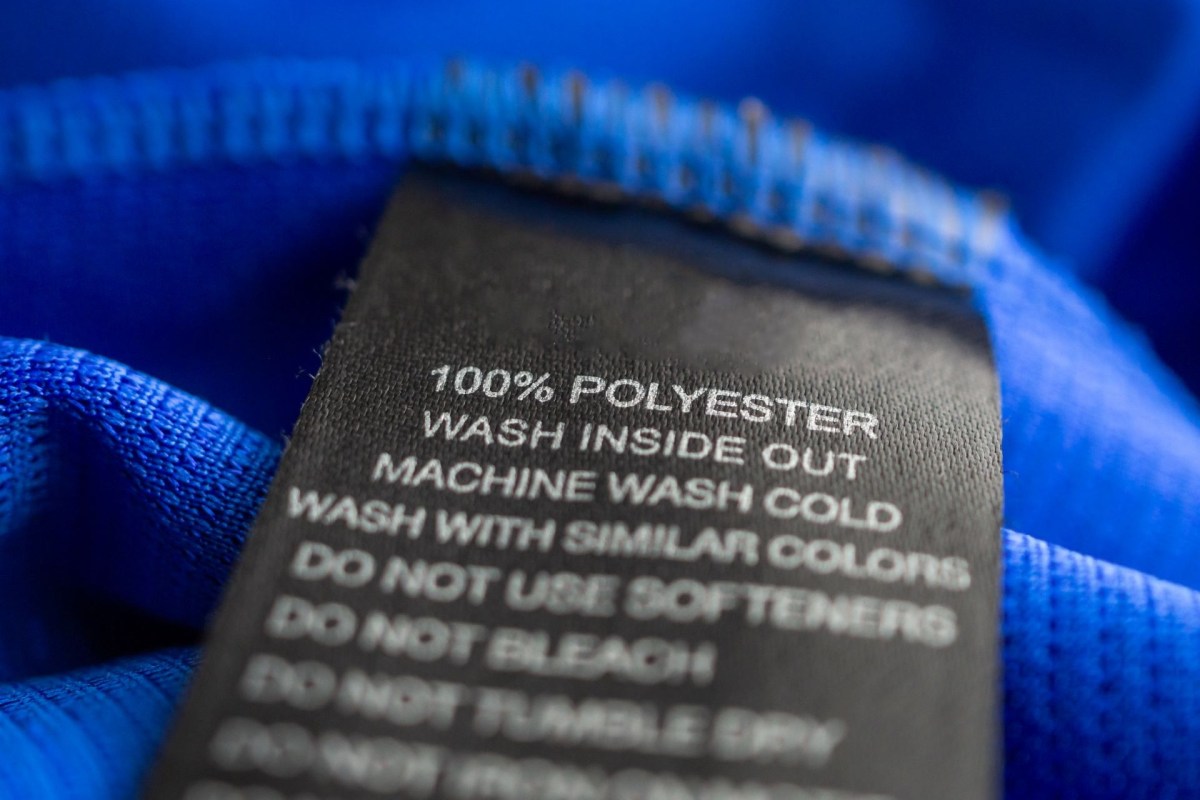Polyester is one of the most difficult textiles to recycle. But researchers from the University of Copenhagen have come up with a way to break down the fabric efficiently — and in a cost-effective way that doesn't harm the environment.
The study, published in the ACS Sustainable Chemistry & Engineering journal and summarized by New Atlas, detailed a non-toxic way to break down a fabric that has been causing problems from production to disposal.
The process of making polyester is carbon intensive, with dirty energy sources like oil needed to make the polyethylene terephthalate — producing a lot of planet-warming pollution — that is blended with cotton.
When the fabric is thrown out, it usually ends up in landfill sites, and it either takes a long time to degrade or doesn't at all. Landfill sites produce methane, which the Environmental Protection Agency has said is "28 times more effective than [carbon dioxide] at trapping heat in the atmosphere."
But this new method is surprisingly easy and kind to the environment, requiring just heat, a non-toxic solvent, and hartshorn salt.
"With our newly discovered technique, we can depolymerize polyester into its monomers while simultaneously recovering cotton on a scale of hundreds of grams, using an incredibly straightforward and environmentally friendly approach," leader of the study Yang Yang told New Atlas.
Hartshorn salt is typically used as a leavening agent for baked goods. However, when added to a mild solvent to break down the polyester, it provided a truly transformative effect.
"We then heat it all up to 160° C [320 °F] and leave it for 24 hours. The result is a liquid in which the plastic and cotton fibers settle into distinct layers," study co-author Shriaya Sharma said per New Atlas. "It's a simple and cost-effective process."
The process is completely safe for humans and causes no environmental damage. The cotton that is separated from the polyethylene terephthalate is also preserved and can be used again.
Now it's just a process of scaling up the method. The researchers are seeking companies to adopt the process. Most of all, though, it's a huge win for the environment and to keep textile waste out of landfills.
"When we discovered that it worked on polyester fabric, we were just ecstatic," study co-author Carlo Di Bernado told New Atlas. "It was indescribable. That it was so simple to perform was nearly too good to be true."
Join our free newsletter for weekly updates on the coolest innovations improving our lives and saving our planet.









